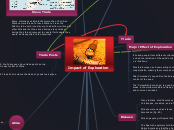par Emily Ogle Il y a 10 années
528
Impact of Exploration
During the period from the 16th century to the early 18th century, significant changes occurred in the global economy, driven by colonial expansion and the principles of mercantilism.

par Emily Ogle Il y a 10 années
528

Plus de détails